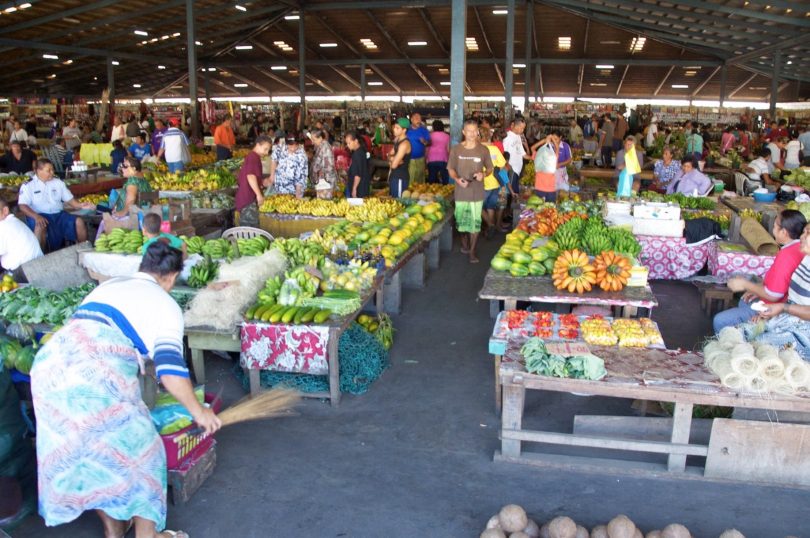Pacific Trade Invest Australia (PTI) has released its Pacific Business Monitor 2020, including nine country-focused reports, to understand the ongoing effects of COVID-19 on small and medium-sized enterprises (SMEs) across the Blue Pacific.
As we looked at the data, it was evident that although we may be in the same storm, the vessels we are using to navigate it vary greatly from yachts to rafts, with many capsizing as the enduring impact of COVID-19 has taken hold.
About the Pacific Business Monitor
In 2020, we commissioned an independent research agency to undertake a monthly survey of businesses across 16 Pacific Island countries from May to December.
The reports provide insight into the heavy impact of COVID-19 on the Pacific’s private sector and highlight the nuances between Pacific nations.
More than 110 companies responded to each survey, which tracked the impacts on business revenue, local economies, and mental health and wellbeing. Access to government support, how businesses are adapting to the crisis, and the key areas of support needed to recover, were also explored.
Respondents were diverse and spanned tourism; accommodation, hospitality and food services; retail and distribution; production; agriculture, forestry and fishing; and professional services sectors.
Border restrictions a heavy blow
The report found the impact of the pandemic remained ‘severe’ across 2020, with more than 90 per cent reporting a negative impact on their local economy and close to 90 per cent of businesses experiencing declines in revenue – largely due to international border closures and a subsequent lack of tourism and cash flow.
Declines in revenue reported were highest in the Solomon Islands and Vanuatu, with 100 per cent of respondents at the end of 2020 reporting a decline, in contrast to New Caledonia where 56 per cent of businesses reported a decline.
Continued uncertainty about how long the crisis will last and when borders will re-open makes it difficult for many businesses to generate short and long-term plans, particularly in countries that rely heavily on international tourism.
At the time of publishing the 2020 report, 62 per cent of businesses were experiencing negative impacts on their mental health, though this had peaked at 74 per cent earlier in the year.
The impacts on the economy, livelihoods and lifestyles, and the uncertainty of when things will return to ‘normal’, remain challenges for businesses and communities across the Blue Pacific.
The pandemic also impacted Pacific supply chains and distribution channels; during the second half of 2020, three-quarters of businesses reported that rising costs of products and raw materials had become increasingly challenging.
The impacts on female-led businesses
We also took a closer look at the data to understand the impacts of the pandemic on female-led businesses, finding that in 2020, female-led businesses were more likely to have experienced a ‘very negative’ impact.
As an example, 79 per cent of female-led businesses in this female-specific survey reported a significant decline in revenue since the COVID-19 pandemic began, compared to 54 per cent of their male-led counterparts.
Businesses adapt in response to challenges
Although approximately one third of respondents permanently or temporarily closed their businesses in July and August in response to these conditions, this number decreased towards the end of 2020. However, only 53 per cent of businesses reported being operational in Tonga at the end of 2020.
To remain operational, most respondents took action to minimise the damage to their businesses, such as reducing operational costs.
The survey found that since August 2020, 50 per cent of businesses had started to diversify their offerings, with nearly a quarter pivoting to sell more online between August and December 2020.
Vanuatu Basket – a local company connecting farmers from across the archipelago – is a great example of this diversification. Prior to COVID-19, the company supplied the booming cruise ship industry in Port Vila with fresh farm produce.
However, the onset of the pandemic and international border closures halted cruise ship routes and their market. We provided buyer introductions and market entry advice that resulted in Vanuatu Basket establishing a new market exporting their coconuts into Australia.
Signs of optimism, but uncertainty and challenges remain
While the impacts of the pandemic remain severe, there are signs of optimism.
79 per cent of respondents in the February 2021 survey reported a negative impact (down from 89 per cent at the end of 2020 and the lowest percentage since these surveys began).
In my conversations with businesses and stakeholders in the Pacific, the announcement of travel bubbles and recent deployment of vaccines have provided a glimmer of hope, and most businesses understand that the needle has moved and are trying to adapt to these new business conditions.
However, until there is certainty and a concrete timeline for the re-opening of international borders and the return of international tourism, many businesses will still feel adrift.
Our March 2021 survey showed business confidence has decreased – with just 69 per cent of respondents confident that their business will survive COVID-19 and 55 per cent of businesses also indicating that they require access to financial support.
It’s still a long voyage for businesses in the Blue Pacific and it’s vital that we continue to listen to the private sector and ensure our responses are tailored to the circumstances of individual nations and businesses.
Download the Pacific Business Monitor 2020 and access individual country-focused Pacific Business Monitors here.



Leave a Comment